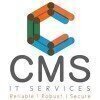Filter interviews by
QualityKiosk Technologies Interview Questions and Answers
105 Interview questions
The bug life cycle outlines the stages a bug goes through from identification to resolution in software testing.
1. **Identification**: A bug is discovered during testing. Example: A user finds a login error.
2. **Reporting**: The bug is documented in a bug tracking system. Example: A tester logs the bug with details.
3. **Assignment**: The bug is assigned to a developer for fixing. Example: A developer receives a no...
A hash set is a data structure that stores unique elements using a hash table for efficient access and retrieval.
Stores unique elements, preventing duplicates.
Uses a hash function to compute an index for each element.
Provides average O(1) time complexity for add, remove, and contains operations.
Example: Inserting elements {1, 2, 3} results in a hash set with unique values.
Commonly used in scenarios requiring fast ...
APIs enable software applications to communicate and interact with each other, facilitating data exchange and functionality integration.
APIs define a set of rules and protocols for building and interacting with software applications.
They can be RESTful (using HTTP requests) or SOAP (using XML-based messaging).
APIs allow different systems to work together, such as a mobile app accessing a web service.
Example: A wea...
Stacks and queues are abstract data structures that manage collections of elements in specific orders.
Stack: Last In, First Out (LIFO) structure. Example: Undo feature in text editors.
Queue: First In, First Out (FIFO) structure. Example: Print job management in printers.
Stacks use push and pop operations to add and remove elements.
Queues use enqueue and dequeue operations for adding and removing elements.
Both can ...
JDK is the development kit, JRE is the runtime environment, and JVM is the virtual machine for executing Java applications.
JDK (Java Development Kit): A complete toolkit for developing Java applications, including the compiler (javac) and libraries.
JRE (Java Runtime Environment): Provides the libraries and components necessary to run Java applications, but does not include development tools.
JVM (Java Virtual Machi...
Java is platform-independent and object-oriented, while C++ is platform-dependent and supports both procedural and object-oriented programming.
Java is platform-independent due to the Java Virtual Machine (JVM), while C++ is platform-dependent and compiled directly to machine code.
Java uses automatic garbage collection, whereas C++ requires manual memory management using 'new' and 'delete'.
Java supports single inhe...
Try-catch is a programming construct used to handle exceptions and errors gracefully during code execution.
Try block: Contains code that may throw an exception.
Catch block: Contains code that handles the exception if it occurs.
Example: try { // risky code } catch (Exception e) { // handle exception }
Multiple catch blocks can be used to handle different types of exceptions.
Finally block: Optional block tha...
Classes are blueprints for creating objects, encapsulating data and behavior in object-oriented programming.
A class defines properties (attributes) and methods (functions) that its objects will have. Example: class Car { int speed; void drive(); }
An object is an instance of a class. Example: Car myCar = new Car();
Classes promote code reusability and organization. Example: class Animal { void eat(); } can be inheri...
Status codes 404 and 200 indicate the success or failure of a web request.
200 OK: The request was successful, and the server returned the requested resource.
Example: A user accesses a webpage, and the server responds with the page content.
404 Not Found: The server cannot find the requested resource, indicating it may not exist.
Example: A user tries to access a non-existent page, resulting in a 404 error.
OOPS stands for Object-Oriented Programming. It is a programming paradigm based on the concept of objects.
OOPS focuses on creating objects that contain data and methods to manipulate that data.
It allows for encapsulation, inheritance, and polymorphism.
Example: Inheritance - a class 'Dog' can inherit traits from a class 'Animal'.
QualityKiosk Technologies Interview Experiences
154 interviews found
I appeared for an interview in Jan 2025.
First group discussion round and after that there will be Aptitude test . Very poor company they don't have PC's for the candidates to give test .They will say you go home and give test .
(5 Questions)
- Q1. What is stack and Queue?
- Ans.
Stack is a data structure that follows Last In First Out (LIFO) principle. Queue is a data structure that follows First In First Out (FIFO) principle.
Stack: LIFO principle, push and pop operations, examples - browser history, function call stack
Queue: FIFO principle, enqueue and dequeue operations, examples - printer queue, message queue
- Q2. Difference between Error and Exception?
- Ans.
Error is a syntactical mistake in code, while Exception is a runtime issue that disrupts program flow.
Error is a compile-time issue, while Exception is a runtime issue
Errors are generally caused by the programmer, while Exceptions are caused by the environment or user input
Examples of Errors include syntax errors, missing semicolons, etc.
Examples of Exceptions include NullPointerException, ArrayIndexOutOfBoundsExceptio...
- Q3. Write a Program to reverse the String?
- Ans.
Program to reverse a string
Use a loop to iterate through the characters of the string
Append each character to the beginning of a new string
Return the reversed string
- Q4. Testing Question What is defect ?
- Ans.
A defect is a flaw or imperfection in a software product that causes it to behave unexpectedly or incorrectly.
Defects can arise from coding errors, design flaws, or incorrect requirements.
Example: A login button that does not respond when clicked is a defect.
Defects can be categorized as critical, major, or minor based on their impact.
Example: A critical defect might cause a system crash, while a minor defect could be ...
- Q5. Explain OOPS ?
- Ans.
OOPS stands for Object-Oriented Programming. It is a programming paradigm based on the concept of objects.
OOPS focuses on creating objects that contain data and methods to manipulate that data.
It allows for encapsulation, inheritance, and polymorphism.
Example: Inheritance - a class 'Dog' can inherit traits from a class 'Animal'.
I applied via Campus Placement
The assessment consists of a one-hour aptitude test that includes questions on data structures and algorithms (DSA) as well as SQL query questions, where I am required to write SQL queries, followed by two coding questions.
Our group discussion topic is whether AI can replace human intelligence.
(3 Questions)
- Q1. Oops concept in java
- Ans.
Oops concept in Java refers to Object-Oriented Programming principles like inheritance, encapsulation, polymorphism, and abstraction.
Inheritance allows a class to inherit properties and behavior from another class.
Encapsulation refers to bundling data and methods that operate on the data into a single unit.
Polymorphism allows objects to be treated as instances of their parent class.
Abstraction hides the implementation ...
- Q2. What is compile time polymorphism
- Ans.
Compile time polymorphism is the ability of a programming language to select which method to execute at compile time based on the method signature.
Compile time polymorphism is achieved through method overloading and operator overloading.
Method overloading allows multiple methods in the same class with the same name but different parameters.
The compiler determines which method to call based on the number and type of arg...
- Q3. What is the SQL query to select and display the name of person who have highest salary among employees?
- Ans.
SQL query to select and display the name of person with highest salary among employees.
Use the MAX() function to find the highest salary
Join the employee table with the salary table using a common key like employee_id
Select the name of the person with the highest salary
(2 Questions)
- Q1. Tell me about yourself. then about final year project.
- Ans.
I am a dedicated QA Automation Testing Engineer with experience in creating and executing test cases. My final year project involved developing a test automation framework using Selenium.
Experienced QA Automation Testing Engineer
Skilled in creating and executing test cases
Developed test automation framework using Selenium for final year project
- Q2. What is your family background, and are you prepared to relocate?
- Ans.
I come from a close-knit family with a diverse background. I am open to relocating for the right opportunity.
Family background is close-knit and diverse
Open to relocating for the right opportunity
I appeared for an interview in Mar 2025, where I was asked the following questions.
- Q1. What is the difference between JDK, JVM, and JRE?
- Ans.
JDK is the development kit, JRE is the runtime environment, and JVM is the virtual machine for executing Java applications.
JDK (Java Development Kit): A complete toolkit for developing Java applications, including the compiler (javac) and libraries.
JRE (Java Runtime Environment): Provides the libraries and components necessary to run Java applications, but does not include development tools.
JVM (Java Virtual Machine): ...
- Q2. What are the differences between Java and C++?
- Ans.
Java is platform-independent and object-oriented, while C++ is platform-dependent and supports both procedural and object-oriented programming.
Java is platform-independent due to the Java Virtual Machine (JVM), while C++ is platform-dependent and compiled directly to machine code.
Java uses automatic garbage collection, whereas C++ requires manual memory management using 'new' and 'delete'.
Java supports single inheritan...
- Q3. TYPES OF EXCEPTION : IOException, FileNotFoundException, ClassNotFoundException
- Q4. DIFFERENT TYPES OF CLASS : PUBLIC PRIVATE PROTECTED STATIC
- Ans.
Classes in programming define access levels and behaviors: public, private, protected, and static.
Public: Accessible from anywhere. Example: 'public class MyClass {}'
Private: Accessible only within the class. Example: 'private int myVar;'
Protected: Accessible within the class and subclasses. Example: 'protected void myMethod() {}'
Static: Belongs to the class rather than instances. Example: 'static int myStaticVar;'
- Q5. What is the definition of try-catch in programming?
- Ans.
Try-catch is a programming construct used to handle exceptions and errors gracefully during code execution.
Try block: Contains code that may throw an exception.
Catch block: Contains code that handles the exception if it occurs.
Example: try { // risky code } catch (Exception e) { // handle exception }
Multiple catch blocks can be used to handle different types of exceptions.
Finally block: Optional block that exe...
- Q6. What is an overview of our project?
- Q7. What is a hash set in data structures?
- Ans.
A hash set is a data structure that stores unique elements using a hash table for efficient access and retrieval.
Stores unique elements, preventing duplicates.
Uses a hash function to compute an index for each element.
Provides average O(1) time complexity for add, remove, and contains operations.
Example: Inserting elements {1, 2, 3} results in a hash set with unique values.
Commonly used in scenarios requiring fast membe...
- Q8. What are stacks and queues?
- Ans.
Stacks and queues are abstract data structures that manage collections of elements in specific orders.
Stack: Last In, First Out (LIFO) structure. Example: Undo feature in text editors.
Queue: First In, First Out (FIFO) structure. Example: Print job management in printers.
Stacks use push and pop operations to add and remove elements.
Queues use enqueue and dequeue operations for adding and removing elements.
Both can be im...
- Q9. What are the reasons behind the banning of the China app in India? GD TOPIC
- Ans.
India banned Chinese apps due to security concerns, data privacy issues, and geopolitical tensions.
National Security: Concerns over data being accessed by the Chinese government.
Data Privacy: Apps were accused of mishandling user data and violating privacy norms.
Geopolitical Tensions: Ongoing border disputes between India and China heightened scrutiny.
Economic Independence: A push for self-reliance in technology and re...
- Q10. What are classes and objects in object-oriented programming?
- Ans.
Classes are blueprints for creating objects, encapsulating data and behavior in object-oriented programming.
A class defines properties (attributes) and methods (functions) that its objects will have. Example: class Car { int speed; void drive(); }
An object is an instance of a class. Example: Car myCar = new Car();
Classes promote code reusability and organization. Example: class Animal { void eat(); } can be inherited b...
- Q11. Few program on if else and while loop
- Q12. SQL VS MONGODB
- Ans.
SQL is a structured query language for relational databases, while MongoDB is a NoSQL database for unstructured data.
Data Structure: SQL uses tables with rows and columns, while MongoDB uses collections and documents (JSON-like format). Example: SQL table vs. MongoDB document.
Schema: SQL databases have a fixed schema, requiring predefined structure, whereas MongoDB is schema-less, allowing for flexible data models.
Quer...
- Q13. HTML CSS XML HTTP FULL FORMS
- Q14. THROW AND THROWS
- Q15. What is your understanding of APIs (Application Programming Interfaces)?
- Ans.
APIs enable software applications to communicate and interact with each other, facilitating data exchange and functionality integration.
APIs define a set of rules and protocols for building and interacting with software applications.
They can be RESTful (using HTTP requests) or SOAP (using XML-based messaging).
APIs allow different systems to work together, such as a mobile app accessing a web service.
Example: A weather ...
- Q16. What do the status codes 404 and 200 mean in website?
- Ans.
Status codes 404 and 200 indicate the success or failure of a web request.
200 OK: The request was successful, and the server returned the requested resource.
Example: A user accesses a webpage, and the server responds with the page content.
404 Not Found: The server cannot find the requested resource, indicating it may not exist.
Example: A user tries to access a non-existent page, resulting in a 404 error.
I applied via Campus Placement and was interviewed in Oct 2024. There were 3 interview rounds.
Is India ready for cashless services
(7 Questions)
- Q1. SOL fundamentals knowledge
- Q2. DDL DML difference
- Ans.
DDL stands for Data Definition Language and is used to define the structure of database objects. DML stands for Data Manipulation Language and is used to manipulate data within the database.
DDL is used to create, modify, and delete database objects like tables, indexes, etc.
DML is used to insert, update, delete, and retrieve data from the database.
Examples of DDL statements include CREATE TABLE, ALTER TABLE, DROP TABLE...
- Q3. Join syntax is known
- Ans.
Join syntax in SQL combines rows from two or more tables based on related columns.
INNER JOIN: Returns records with matching values in both tables. Example: SELECT * FROM A INNER JOIN B ON A.id = B.a_id;
LEFT JOIN: Returns all records from the left table and matched records from the right table. Example: SELECT * FROM A LEFT JOIN B ON A.id = B.a_id;
RIGHT JOIN: Returns all records from the right table and matched records ...
- Q4. Logic gate knowledge
- Q5. Universal logic gate
- Q6. Testing automation
- Q7. Javascript knowledge
(4 Questions)
- Q1. Self introduction
- Q2. Family background
- Q3. Native place information
- Ans.
I was born and raised in a small town in the countryside, surrounded by nature and close-knit community.
My native place is a peaceful town with a population of around 10,000 people.
It is located in the southern part of the country, known for its lush greenery and scenic landscapes.
The town has a strong sense of community, with annual festivals and events that bring everyone together.
I have fond memories of playing in t...
- Q4. Relocation to Mumbai
Interview Preparation Tips
Skills evaluated in this interview
I appeared for an interview in Jan 2025.
The maximum score required to achieve is 50% out of 100.
(2 Questions)
- Q1. Can you describe your previous project?
- Q2. Describe Mobile Testing and API Testing.
- Ans.
Mobile Testing focuses on testing mobile applications on various devices and platforms. API Testing involves testing the functionality, reliability, performance, and security of APIs.
Mobile Testing involves testing mobile applications on different devices, operating systems, and networks.
API Testing focuses on testing the functionality, reliability, performance, and security of APIs.
Mobile Testing includes testing user...
Interview Preparation Tips
(1 Question)
- Q1. X path question they asked
(1 Question)
- Q1. They asked selenium question
(2 Questions)
- Q1. Use of 8583 , SWIFT code Msg system, Payment UPI gateway working module, payee beneficiary API response.etc.
- Q2. Client side behaviour and handling for extreme work pressure
- Ans.
Client side behavior under extreme work pressure is crucial for testing team leads.
Encourage open communication with team members to address any concerns or challenges.
Provide support and resources to help team members manage stress and workload effectively.
Set realistic expectations and prioritize tasks to prevent burnout.
Lead by example by demonstrating resilience and maintaining a positive attitude.
Implement regular...
(3 Questions)
- Q1. Basics of Testing
- Q2. Testing methodologies
- Q3. Integration,api testing, automation
I appeared for an interview before Jun 2024, where I was asked the following questions.
- Q1. Technical Questions
- Q2. Domain Question
I applied via Campus Placement
Array ,, string array string operator and
Write sum program in java coding
(2 Questions)
- Q1. What is java programming
- Ans.
Java programming is a high-level, object-oriented programming language used for developing applications and software.
Java is platform-independent, meaning it can run on any device with a Java Virtual Machine (JVM)
It is known for its simplicity, readability, and versatility in creating web applications, mobile apps, and enterprise software
Java uses a 'write once, run anywhere' approach, making it popular for cross-platf...
- Q2. What is sdlc in testing
- Ans.
SDLC in testing refers to the Software Development Life Cycle, which is a process used by software development teams to design, develop, and test high-quality software.
SDLC consists of several phases such as planning, analysis, design, implementation, testing, and maintenance.
Testing is an integral part of SDLC and involves activities like test planning, test case development, test execution, and defect tracking.
SDLC h...
Top trending discussions






QualityKiosk Technologies Interview FAQs
Some of the top questions asked at the QualityKiosk Technologies interview -
The duration of QualityKiosk Technologies interview process can vary, but typically it takes about less than 2 weeks to complete.
Tell us how to improve this page.
QualityKiosk Technologies Interviews By Designations
- QualityKiosk Technologies Test Engineer Interview Questions
- QualityKiosk Technologies Senior Test Engineer Interview Questions
- QualityKiosk Technologies Software Tester Interview Questions
- QualityKiosk Technologies Softwaretest Engineer Interview Questions
- QualityKiosk Technologies Software Engineer Interview Questions
- QualityKiosk Technologies Automation Engineer Interview Questions
- QualityKiosk Technologies Business Analyst Interview Questions
- QualityKiosk Technologies Consultant Interview Questions
- Show more
Interview Questions for Popular Designations
- Test Engineer Interview Questions
- Senior Test Engineer Interview Questions
- Software Tester Interview Questions
- Softwaretest Engineer Interview Questions
- Software Engineer Interview Questions
- Software Developer Interview Questions
- Senior Software Engineer Interview Questions
- Data Analyst Interview Questions
- Show more
Overall Interview Experience Rating
based on 130 interview experiences
Difficulty level
Duration
Interview Questions from Similar Companies
QualityKiosk Technologies Reviews and Ratings
based on 1.3k reviews
Rating in categories
|
Test Engineer
2.2k
salaries
| ₹1.9 L/yr - ₹7.7 L/yr |
|
Senior Test Engineer
1.7k
salaries
| ₹3.7 L/yr - ₹13.1 L/yr |
|
Softwaretest Engineer
1k
salaries
| ₹2 L/yr - ₹8.8 L/yr |
|
Associate Test Lead
242
salaries
| ₹5 L/yr - ₹18 L/yr |
|
Automation Test Engineer
227
salaries
| ₹2.3 L/yr - ₹8 L/yr |

ITC Infotech

CMS IT Services

KocharTech

Xoriant
- Home >
- Interviews >
- QualityKiosk Technologies Interview Questions















